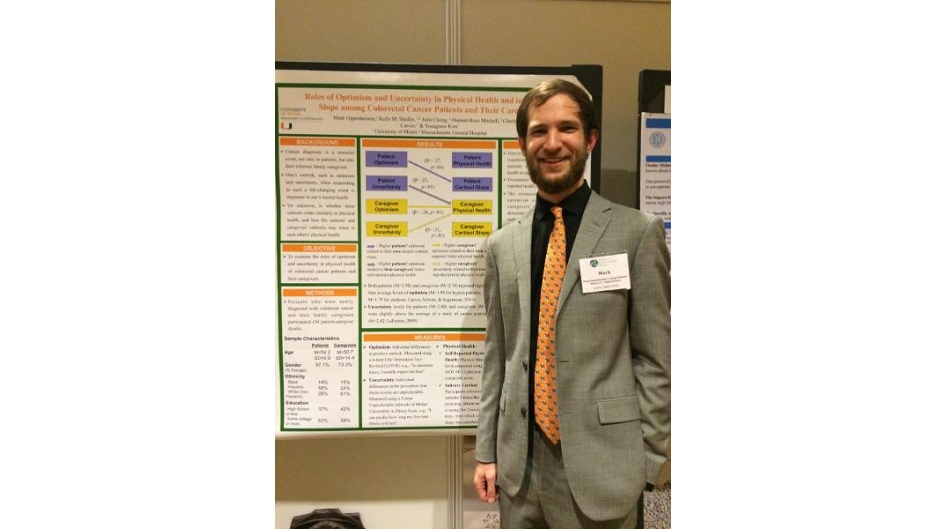University of Miami (UM) College of Arts & Sciences undergraduate student Mark Oppenheimer, ’17, presented scientific research on the mental outlook of cancer patients and their caregivers at the 74th Annual Scientific Meeting of the American Psychosomatic Society in Denver.
The prestigious scientific and clinical forum connects investigators, postgraduate, graduate, and undergraduate students to develop ideas to stimulate further research. Oppenheimer, who is working on a B.S. in neuroscience, said the purpose of the study “was to examine the role of individuals’ general outlook, such as optimism and uncertainty, in their own and their partner’s physical health among colon cancer patients and their caregivers.”
According to Oppenheimer, patients who were newly diagnosed with colon cancer and their family caregivers participated in the study, which included a total of 54 patient-caregiver data that were subject to analysis; optimism, uncertainty, and physical health were self-reported. Also, participants collected saliva samples three times per day for two consecutive days, from which cortisol was assayed.
“We found that one’s optimism related to their better regulation of salivary cortisol in patients and better self-reported health in caregivers,” said Oppenheimer. “Uncertainty in caregivers was related to their own poorer physical health. Also, patient optimism related to their caregiver’s better physical health. This crossover effect demonstrates the importance of the patient caregiver relationship.”
The findings also suggest further investigations about the long-term results of individual and dyadic effects of optimism and uncertainty on the physical health of cancer patients and their caregivers, as well as studying additional biomarkers, such as inflammatory-cytokines that may link one's outlook to their physical health.
Furthermore, cancer patients and their caregivers may benefit from psychosocial interventions designed to promote optimistic outlook and reduce illness uncertainty for improving their physical health. Oppenheimer worked on the study with co-authors Kelly Shaffer, Julia Chong, Hannah-Rose Mitchell, and Charles S. Carver under the leadership of Dr. Youngmee Kim, associate professor of psychology at the College of Arts & Sciences, in association with the department’s FAMILY Lab.
April 06, 2016

